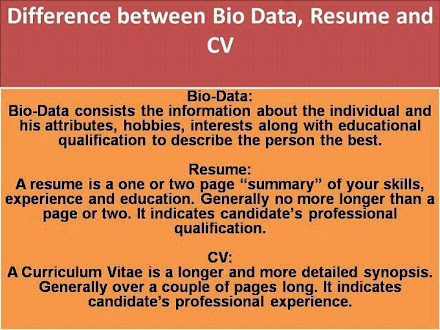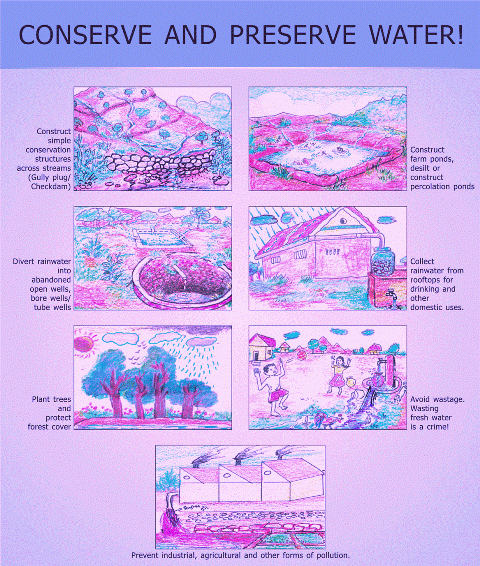THE FIRST VILLAGE LEVEL COORDINATION MEETING OF NGO’s WORKING IN MELA MANAKUDY
Source: KRRC
Date :19.01.2006
Time : 3.45 p.m. - 5.30p.m.
Venue: St. Little Flower Hr. Sec School, Melamanakudy, Kanyakumari District
The first village level coordination meeting of NGOs working for the tsunami affected village of Melamanakudy was held on 19th Jan, 2006, at the St. Little Flower Hr. Sec. School, Melamanakudy. Sixteen participants from ten NGOs were present for the meeting. The meeting was organized and moderated by KRRC.
List of Participant Organisations:
Praxis, Care India, DEW, Chardep, Deeds, Oferr, World Vision, Concern India, Heal, VHAK
The meeting started at 3.45 p.m. Fr. Nithya Sahayam started the meeting with the brief introduction and background about the various efforts taken for the coordination meeting and also about the need of the meeting. The parish priest of Melamanakudy, Fr. Benzigar added to the introduction and expressed his desire for working together for the rehab and development of the village. Followed by the introductory words, all the participants introduced themselves. The activities of the participant organisations were then discussed.
Activities of NGOs
Praxis: They provided fish vending vessels and Rs. 2000 loan to individual members of a widow group and Rs. 1000 loan to each member of a group of breakwater fishers. They were running a tuition center for 3-8th Standard children (35 students), provided uniform and books to the students, provided health mix and milk to 0-5 year children. They were also giving psychosocial support. They planned to construct a tuition center, to repair damaged houses and to construct new houses. They could support the salary of one more tuition teacher.
DEW: They were involved in identifying the bonded laborers in the coastal areas and organized awareness programmes on bonded labor. They would also concentrate on alternate employment and insurance.
DEEDS: They conducted a need assessment, provided three days PS care training to 18 teachers, gave PS support to 403 school children and stress management training to school teachers. They identified 20 wives of severely affected alcoholic persons for psychosocial support. They planned to employ 20 community level workers for six months.
Chardep: They conducted a baseline survey with the support of Care India and identified 330 vulnerable persons. They planned to implement micro projects like shell crafts, pickle making etc for their livelihood and educational projects like tuition, adult literacy, computer literacy etc.
Care India: They had six partners in Kanyakumari district. They worked with six angles, restoration of livelihood, and promotion of livelihood, DRM, infrastructure development, and advocacy. For Melamanakudy, they would work in partnership with Chardep. They expressed their interest to support micro projects for livelihood and education and urged that all NGOs should work united without duplicating for which KRRC should play the major role.
Oferr: They gave counseling, conducted medical camps, provided health mix to ICDS children, health tonics to the aged people, conducted awareness programmes on health, AIDS and sanitation, provided bleaching powder, chlorine tablets and phenol, provided trainings to SHGs and supported for some medical needs of the affected people. They planned to give notebooks to the children.
World Vision: They provided relief supports, hygiene and first aid kits to the temporary shelters, organized cash for work programmes, organized a day care center, conducted tuition to 6-10 Std children and were running a tailoring unit for 60 women. They planned to support educational projects.
Concern India: They provided fishing equipments and engines and planned to give Rs. 8000 worth catamaran and nets to 15 persons fishing in the backwaters.
Heal: They involved in the removal of garbage, counseling and conducted an exhibition in Kottar. They planned to develop mangrove gardens along the river and also to desilt and deepen the estuary.
VHAK: They provided mixi and grinder to the temporary shelter, gave PS care, organized children parliament groups, supported for the RCC roofing for the tuition center and organized peer child contact programmes.
Discussions
The parish priest shared that there was lot of need for educational support, particularly for the dropouts due to migration and also for higher education to those who completed schooling. Appreciating the movement of the NGOs to involve in educational support and emphasizing also the importance of psychosocial care, he expressed that all NGOs must come together and work in a coordinated way as to address multifarious needs.
The parish priest also expressed the problems of the joint families who neither got new individual house nor enough space in the new house provided to their partners. The village needed more houses and he requested the NGOs for support.
Chardep was ready to support for computer literacy if some place was provided. World vision and Concern India also expressed their interest to support education related programmes. It was suggested to provide abacus trainings, special coaching for professional courses, adult literacy, and special education for school dropouts.
Regarding the colony houses, it was shared that the Government was providing Rs. 10000 for renovating them. But the discussion found that the amount given by the Government would not be sufficient to ensure quality and seismic resistance. Lobbying was necessary at the district level to ensure quality programme for these houses.
Though many micro projects were needed for developing the alternate employment opportunities of the community, yet marketing linkages were essential. A question was raised whether KRRC could establish a marketing linkage system at the district level.
Regarding the various tuition programmes and psychosocial support programmes being conducted, it was suggested to have a separate meeting with those NGOs, to plan as to bridge the gaps.
Suggestions
Activities of NGOs
Praxis: They provided fish vending vessels and Rs. 2000 loan to individual members of a widow group and Rs. 1000 loan to each member of a group of breakwater fishers. They were running a tuition center for 3-8th Standard children (35 students), provided uniform and books to the students, provided health mix and milk to 0-5 year children. They were also giving psychosocial support. They planned to construct a tuition center, to repair damaged houses and to construct new houses. They could support the salary of one more tuition teacher.
DEW: They were involved in identifying the bonded laborers in the coastal areas and organized awareness programmes on bonded labor. They would also concentrate on alternate employment and insurance.
DEEDS: They conducted a need assessment, provided three days PS care training to 18 teachers, gave PS support to 403 school children and stress management training to school teachers. They identified 20 wives of severely affected alcoholic persons for psychosocial support. They planned to employ 20 community level workers for six months.
Chardep: They conducted a baseline survey with the support of Care India and identified 330 vulnerable persons. They planned to implement micro projects like shell crafts, pickle making etc for their livelihood and educational projects like tuition, adult literacy, computer literacy etc.
Care India: They had six partners in Kanyakumari district. They worked with six angles, restoration of livelihood, and promotion of livelihood, DRM, infrastructure development, and advocacy. For Melamanakudy, they would work in partnership with Chardep. They expressed their interest to support micro projects for livelihood and education and urged that all NGOs should work united without duplicating for which KRRC should play the major role.
Oferr: They gave counseling, conducted medical camps, provided health mix to ICDS children, health tonics to the aged people, conducted awareness programmes on health, AIDS and sanitation, provided bleaching powder, chlorine tablets and phenol, provided trainings to SHGs and supported for some medical needs of the affected people. They planned to give notebooks to the children.
World Vision: They provided relief supports, hygiene and first aid kits to the temporary shelters, organized cash for work programmes, organized a day care center, conducted tuition to 6-10 Std children and were running a tailoring unit for 60 women. They planned to support educational projects.
Concern India: They provided fishing equipments and engines and planned to give Rs. 8000 worth catamaran and nets to 15 persons fishing in the backwaters.
Heal: They involved in the removal of garbage, counseling and conducted an exhibition in Kottar. They planned to develop mangrove gardens along the river and also to desilt and deepen the estuary.
VHAK: They provided mixi and grinder to the temporary shelter, gave PS care, organized children parliament groups, supported for the RCC roofing for the tuition center and organized peer child contact programmes.
Discussions
The parish priest shared that there was lot of need for educational support, particularly for the dropouts due to migration and also for higher education to those who completed schooling. Appreciating the movement of the NGOs to involve in educational support and emphasizing also the importance of psychosocial care, he expressed that all NGOs must come together and work in a coordinated way as to address multifarious needs.
The parish priest also expressed the problems of the joint families who neither got new individual house nor enough space in the new house provided to their partners. The village needed more houses and he requested the NGOs for support.
Chardep was ready to support for computer literacy if some place was provided. World vision and Concern India also expressed their interest to support education related programmes. It was suggested to provide abacus trainings, special coaching for professional courses, adult literacy, and special education for school dropouts.
Regarding the colony houses, it was shared that the Government was providing Rs. 10000 for renovating them. But the discussion found that the amount given by the Government would not be sufficient to ensure quality and seismic resistance. Lobbying was necessary at the district level to ensure quality programme for these houses.
Though many micro projects were needed for developing the alternate employment opportunities of the community, yet marketing linkages were essential. A question was raised whether KRRC could establish a marketing linkage system at the district level.
Regarding the various tuition programmes and psychosocial support programmes being conducted, it was suggested to have a separate meeting with those NGOs, to plan as to bridge the gaps.
Suggestions
1. To conduct a coordination for educational programmes
2. To lobby with the Government to increase the quality of colony houses renovation programmes
3. To lobby with the Government to include in the housing beneficiary list the joint families and left out families who lost houses by tsunami
4. To establish a district level marketing center
5. To conduct regular coordination meetings
It was decided to have the next meeting on 23rd Feb. Fr. Dunsten, thanked the participants and the meeting ended at 5.45 p.m.






No comments:
Post a Comment